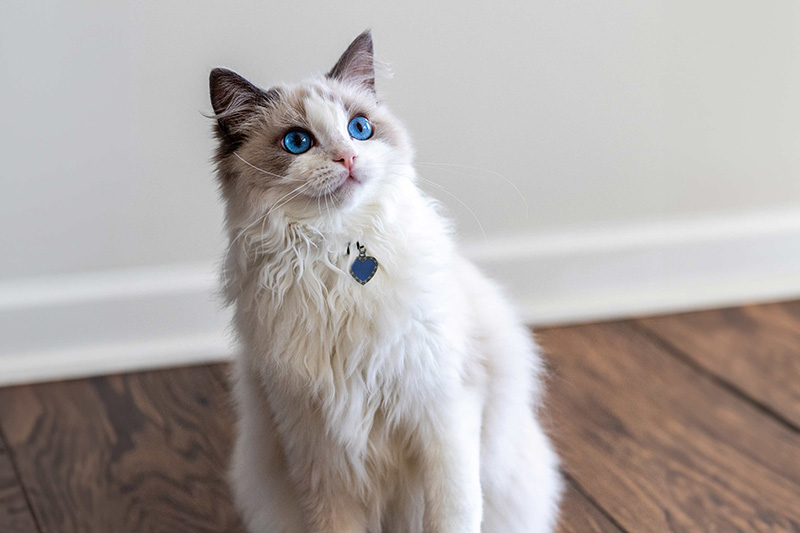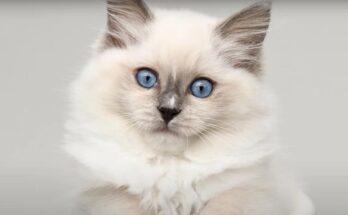Ragdoll cats are prone to certain health issues, namely heart disease and kidney problems. It’s important to be aware of these risks when caring for a Ragdoll cat.
Ragdoll cats, known for their affectionate nature and striking blue eyes, are prone to specific health issues that owners should be mindful of. These issues include heart disease and kidney problems, making regular vet check-ups crucial for early detection and treatment.
Despite these potential health concerns, Ragdoll cats make wonderful companions with their gentle demeanor and social personality. Understanding their predispositions and providing proper care can help ensure a long and happy life for these beloved feline friends.
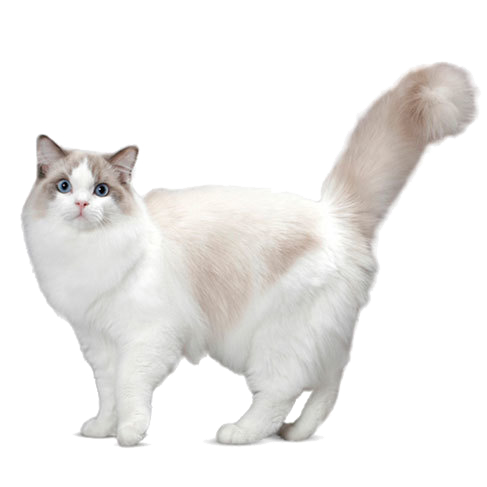
Credit: www.petplan.co.uk
Common Health Issues In Ragdoll Cats
Ragdoll cats are generally healthy, but like all breeds, they are prone to specific health concerns. Understanding the common health issues in Ragdoll cats can help you provide the best care for your feline companion.
Hereditary Health Conditions
- Ragdoll cats may inherit certain health conditions from their parents.
- Heart conditions, such as hypertrophic cardiomyopathy, can occur in Ragdolls.
- Kidney diseases, like polycystic kidney disease, are also a concern in this breed.
Nutritional Sensitivities
- Ragdoll cats can have sensitivities to certain foods or ingredients.
- Digestive issues are common in Ragdolls with nutritional sensitivities.
- Consult with your vet for the best diet for your Ragdoll’s health.
Symptoms To Watch Out For
Ragdoll cats are prone to specific symptoms to watch out for, such as heart issues, urinary problems, and dental issues. These potential health concerns require close monitoring by the owner to ensure the cat’s well-being. Regular vet check-ups can help detect and address these issues early on.
Ragdoll cats are known for their friendly nature and beautiful appearance. However, like any other breed, they can be prone to certain health issues. As a responsible Ragdoll cat owner, it’s important to be aware of the symptoms that may indicate a potential health problem. By recognizing and monitoring these symptoms, you can ensure the well-being of your furry friend. Two common symptoms to watch out for in Ragdoll cats are lethargy and fatigue, and changes in appetite.Lethargy And Fatigue
Lethargy and fatigue are two symptoms that may suggest your Ragdoll cat is not feeling well. If you notice a significant decrease in your cat’s energy levels and overall physical activity, it could be a sign of an underlying health issue. Ragdolls are generally known for being social and playful, so any sudden change in behavior should be taken seriously. It’s important to observe your cat’s daily routine and look for signs of excessive sleepiness or a lack of interest in usual activities. Additionally, pay attention to whether they are withdrawing from social interaction or seem uninterested in playing. If your cat is exhibiting these symptoms, it’s advisable to consult a veterinarian for a thorough examination and proper diagnosis.Changes In Appetite
Another important symptom to watch out for in your Ragdoll cat is changes in their appetite. Cats are known for their love of food, so any drastic change in eating behavior should raise concern. If your cat starts showing a lack of interest in meals or is eating significantly less than usual, it could be a sign of an underlying health issue. On the other hand, increased appetite and excessive thirst may also indicate a problem. Monitor your cat’s eating habits carefully and take note of any significant changes in their food consumption. Consistent appetite irregularities can lead to nutritional deficiencies or obesity, so it’s crucial to address any abnormalities promptly. Consulting with a veterinarian can help identify the cause of these changes and develop an appropriate plan of action. In conclusion, keeping an eye out for symptoms such as lethargy, fatigue, and changes in appetite can help ensure the overall health and well-being of your Ragdoll cat. It’s important to be proactive and seek professional advice if you notice any concerning signs. By addressing these symptoms early on, you can help your beloved Ragdoll live a happy and healthy life.Preventive Measures For Ragdoll Cat Owners
Ragdoll cats are known for their gentle and affectionate nature, but like all breeds, they are prone to certain health issues. As a responsible pet owner, it’s crucial to be aware of these predispositions and take preventive measures to ensure the well-being of your beloved feline companion.
Regular Vet Check-ups
Regular vet check-ups are essential for monitoring the overall health and detecting any potential issues early on. Schedule annual visits to the veterinarian for comprehensive examinations and vaccinations. Additionally, be observant of any unusual behavior or symptoms that may warrant immediate attention.
Balanced Diet And Proper Nutrition
A balanced diet plays a pivotal role in maintaining a Ragdoll cat’s health. Ensure that their diet consists of high-quality protein sources, essential nutrients, and proper hydration. Consult with a veterinarian to determine the most suitable diet plan based on the cat’s age, weight, and health condition.
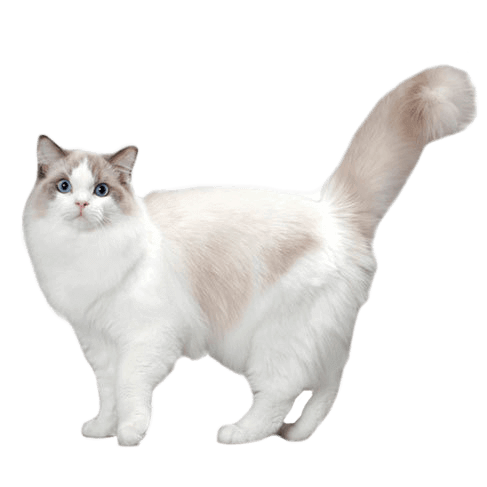
Credit: www.petplan.co.uk
Managing Health Issues In Ragdoll Cats
Ragdoll cats are beloved for their gentle nature and stunning appearance. However, like all cat breeds, they are prone to certain health issues that require careful attention and management. It’s important for Ragdoll cat owners to be aware of these potential health concerns so they can take proactive steps to ensure their pets’ well-being. Here are some common health issues in Ragdoll cats and how to manage them:
Medication And Treatment Options
When it comes to addressing health issues in Ragdoll cats, medication and treatment options play a crucial role. Consult with a qualified veterinarian to determine the most appropriate medications and treatments for specific conditions. Medications may include antibiotics, anti-inflammatories, or specialized prescription diets. In cases of chronic conditions, regular monitoring and adjustment of treatment may be necessary to ensure the best outcomes for your feline companion.
Environmental Adaptations
Environmental adaptations are essential for managing the health of Ragdoll cats. These adaptations may include creating a comfortable and stress-free living environment to minimize the risk of stress-related health issues. Providing a balanced diet, regular exercise, and mental stimulation can significantly improve overall health and well-being. Additionally, ensuring a safe and secure outdoor environment and minimizing exposure to potential toxins or hazards indoors can help prevent common health problems in Ragdoll cats.
Lifestyle Modifications For A Healthy Ragdoll Cat
As loving and attentive cat owners, it is our responsibility to ensure the health and well-being of our Ragdoll cats. This means making certain lifestyle modifications to address their unique needs. By focusing on exercise and playtime as well as stress reduction techniques, we can promote a healthy and happy life for our beloved Ragdolls.
Exercise And Playtime
Sufficient exercise and playtime are vital for the overall health of a Ragdoll cat. These gentle and affectionate cats may be prone to weight gain if not provided with regular opportunities to move and burn off excess energy. Engaging in active play sessions can help prevent obesity, maintain muscle tone, and stimulate their natural hunting instincts.
- Allocate daily play sessions of at least 15 minutes to keep your Ragdoll cat active.
- Provide a variety of toys that encourage movement, such as feather wands or interactive treat puzzles.
- Set up a dedicated play area with scratching posts, climbing trees, and tunnels to enrich their environment.
- Engage in interactive playtime yourself, using toys that encourage jumping and chasing, to strengthen your bond with your Ragdoll cat.
Stress Reduction Techniques
Ragdoll cats are known for their calm and gentle nature, but they can still experience stress and anxiety. Stress can negatively impact their overall well-being and even lead to health issues. Therefore, implementing stress reduction techniques is essential to maintaining a healthy and balanced lifestyle for these beautiful feline companions.
- Create a quiet and peaceful environment for your Ragdoll cat by providing cozy hiding spots and comfortable resting areas.
- Establish a consistent routine for feeding, playtime, and cuddle sessions to give them a sense of security and predictability.
- Use feline pheromone diffusers or sprays to create a calming atmosphere.
- Avoid sudden changes in their environment and gradually introduce them to new people, animals, or surroundings.
By adhering to these lifestyle modifications, you can ensure that your Ragdoll cat remains happy, active, and stress-free. Remember that their physical and emotional well-being relies on the love and care you provide.
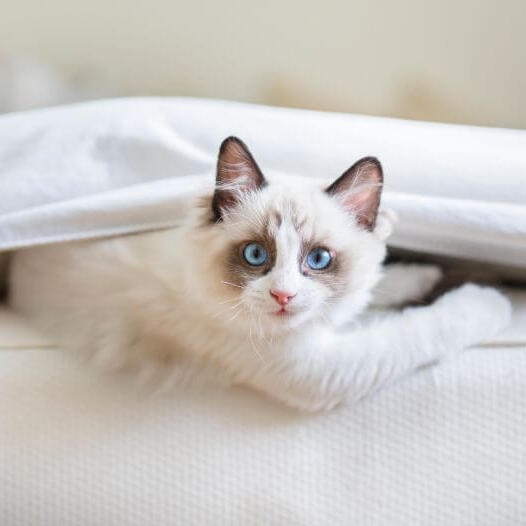
Credit: www.purina.co.uk
Frequently Asked Questions Of What Ragdoll Cats Are Prone To
What Are The Cons Of Having A Ragdoll Cat?
Ragdoll cats may shed a lot, requiring regular grooming. They are prone to health issues and can be high maintenance due to their social nature.
Are Ragdolls Prone To Urinary Problems?
Yes, Ragdolls may be prone to urinary problems.
What Are The Personality Problems With Ragdoll Cats?
Ragdoll cats may have issues with anxiety and stress, leading to withdrawal or dependence. They can also be prone to urinary problems due to their sensitive nature. Regular check-ups and a calm, stable environment can help manage these personality problems.
What Are Ragdolls Sensitive To?
Ragdolls are sensitive to changes in their environment. They can be affected by loud noises and stress. They are also prone to certain health issues like heart disease and kidney problems. Understanding their sensitivities can help in providing better care for Ragdoll cats.
Conclusion
Overall, Ragdoll cats are prone to a variety of health issues. From their potential for heart disease, such as hypertrophic cardiomyopathy, to gastrointestinal problems like megaesophagus, it’s important for owners to be aware of these vulnerabilities. Regular visits to the vet, a proper diet, and a safe environment can help mitigate these risks and ensure a happy and healthy life for your Ragdoll companion.
Stay informed and attentive to their needs, and you’ll be able to provide the best care possible for your beloved feline friend.
